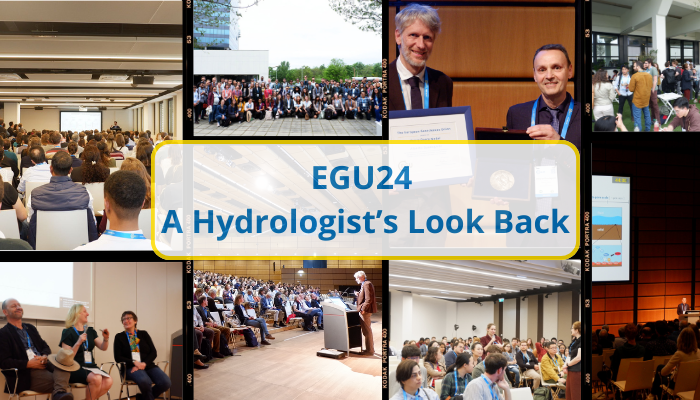
With almost 21,000 participants, the 2024 EGU General Assembly, held from 14-19 April, in Vienna and online, was the biggest one yet. For hydrologists, there were hundreds of sessions to enjoy, networking events to join, short courses to learn from, and colleagues to meet. Here’s a look back at the highlights!
A look back at EGU24. Thanks to the video editing service Tasty Edits for the fantastic video edit!
101+ Scientific Sessions
As every year, the scientific programme offered a diverse range of sessions in the hydrological sciences – from integrating remote sensing data into hydrological models, to monitoring floods and droughts.
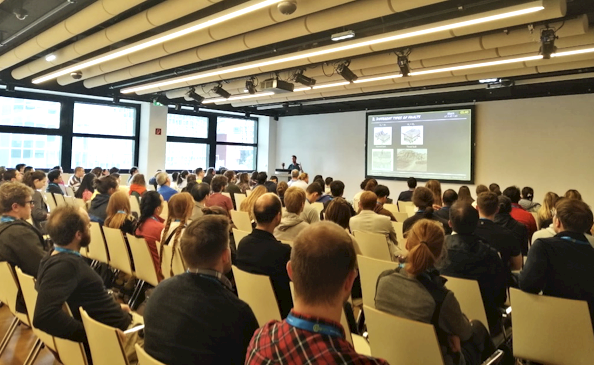
Overall, there were 101 scientific sessions in the HS Division, as well as 1,227 oral presentations, 1,231 posters, and 331 HS-led PICO presentations.
Going beyond the HS Division, though, hydrologists also contributed extensively to interdisciplinary sessions, organised dozens of splinter meetings, and participated in Great Debates.
Furthermore, several sessions were also (co-)organised by partner organisations in the hydrological sciences, such as the International Association of Hydrological Sciences (IAHS), which held several meetings centred around its new Scientific Decade, HELPING.
Highlights of the Division Meeting
On Tuesday at lunchtime, the HS Division met in Room B for its annual Division Meeting, chaired by Division president Alberto Viglione.
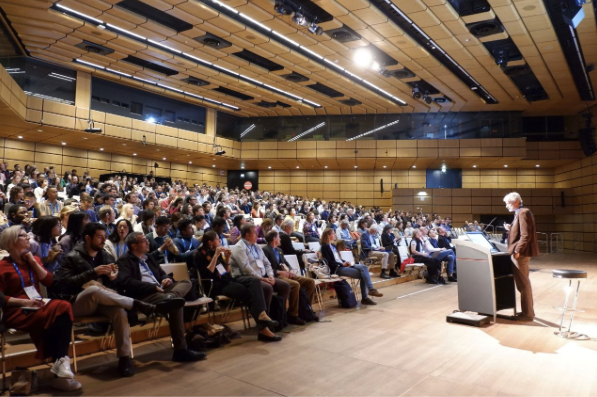
Attendees got updates about HS Division activities, from our new newsletter and social media profiles on LinkedIn and Instagram, to the new ECS team.
A particular spotlight was given to Hydrology and Earth System Sciences (HESS), which is once again among the most successful and high-impact EGU journals, as well as hydrology journals in general. Markus Hrachowitz was honoured for his extensive work on the editorial team with this year’s Outstanding Editor Award.

Four papers received the Jim Dooge award this year, Höge et al. 2022 and Mai et al. 2022 as the most outstanding papers of 2022, and Peters et al. 2023 and Morin et al. 2023 as the most outstanding papers of 2023.
Another shoutout went to the winners of the 2023 Outstanding Student and PhD candidate Presentation (OSPP) awards, who won over the judges with their amazing presentations and posters at the last General Assembly. The winners, out of 365 participants, are Amos Agossou, Bryan Marinelli, Elisie Kåresdotter, Irene Himmelbauer, Jonas Pyschik, Michael De Santi, Shoobhangi Tyagi, Tim Busker, and Tzu-Han Weng.
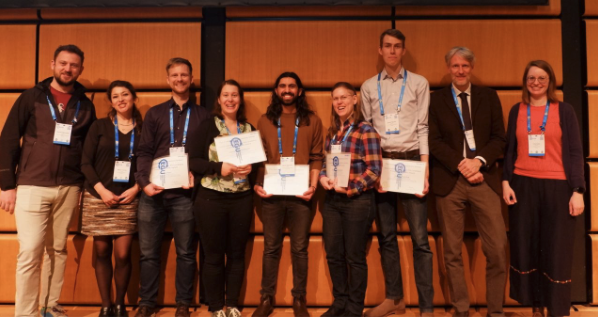
Medals and Awards
On Monday afternoon, as well as Tuesday and Thursday evening, the HS community came together for three outstanding presentations – those of this year’s Division awardees:
- Andrea Cominola, winner of this year’s outstanding ECS award, gave his audience insights about how to harness multi-scale human data to foster sustainable water usage and societal adaptation to climate change.
- Henry Darcy Medallist Alberto Guadagnini led a captive audience into the richness of processes in porous media.
- Paul D. Bates, who was awarded this year’s John Dalton Medal, gave a spellbinding talk about his extensive work on hydrologic/hydraulic models over the past three decades.
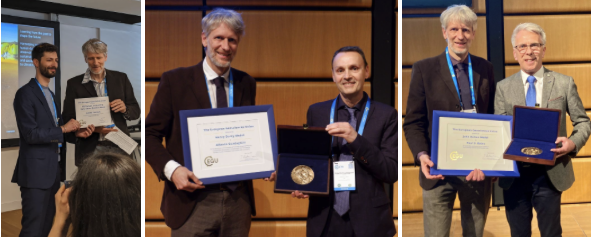
(ECS) Networking Events and Short Courses
Finally, particular highlights for the early career hydrologists in our Division were the numerous networking events and short courses, many organised together with ECS from the Young Hydrologic Society and IAHS.
On Monday at lunch, the traditional networking event took place on Terrace G, with dozens of young hydrologists coming together to meet their colleagues. This was followed by a reception for first-time attendees on Monday evening, a meet-up of mentors and mentees, as well as a union-level ECS networking reception on Tuesday.
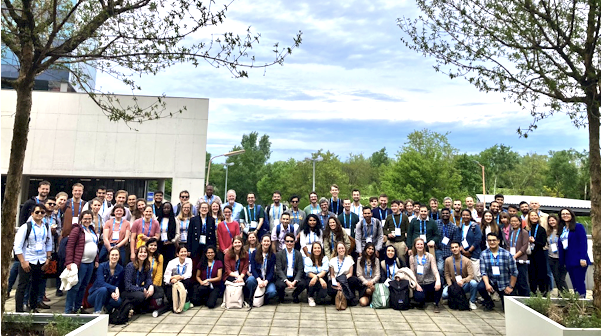
Hydrologists were also incredibly active in organising Short Courses, which aim at helping participants build transferable skills to aid them throughout their careers. One example of this was “Meet the Editors Part I” on Monday evening where the ECS representatives of the HS Division as well as YHS members invited three editors from prestigious hydrological journals, Heidi Kreibich (NHESS, HSJ), Mario Mendiondo (JWCC, IAHS DWG) , and Stacey Archfield (HESS, HSJ, WRR), to talk to young researchers about the publishing process, winning strategies, and mistakes to avoid.
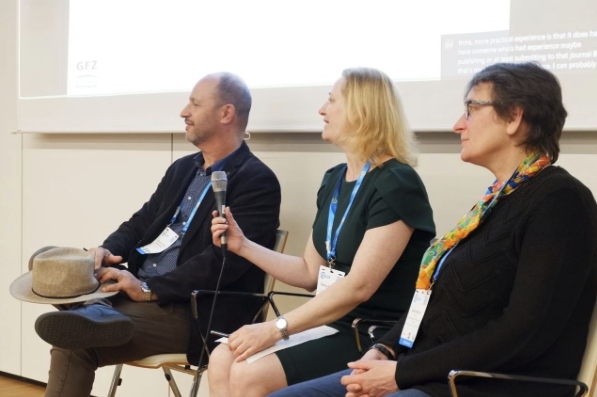
See You at EGU25!
That’s a wrap on EGU24! A huge thank you to everyone who attended, presented, convened, and organised.
It’s now time to kick back and relax for a few weeks before we gear up for EGU25!
Right now, calls for nominations for next year’s medals and awards are open. Do you know someone you think deserves recognition for their hard work and excellent research achievements? Submit your proposal now or get in touch with colleagues to join forces for a strong proposal!
Want to get involved in EGU25? Keep an eye out for the next call for sessions, which will open in early summer!
See you in Vienna and online for EGU25, 27 April–2 May 2025!
